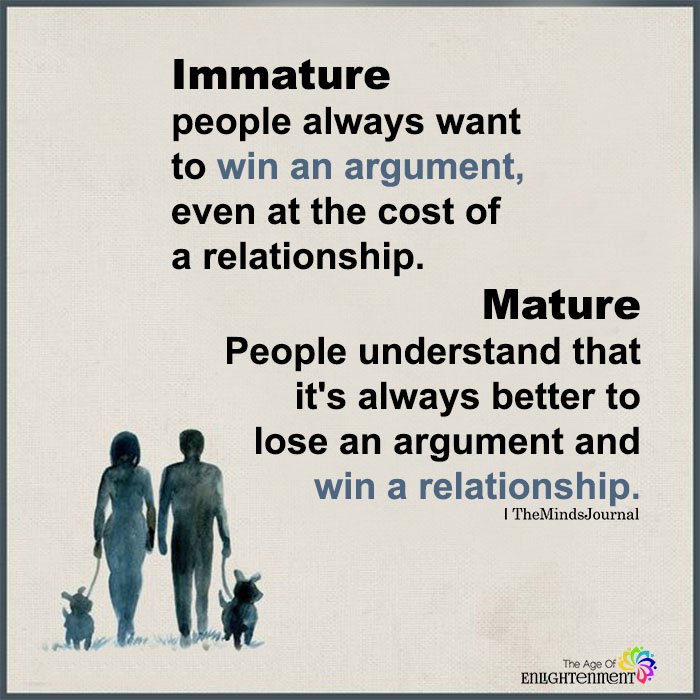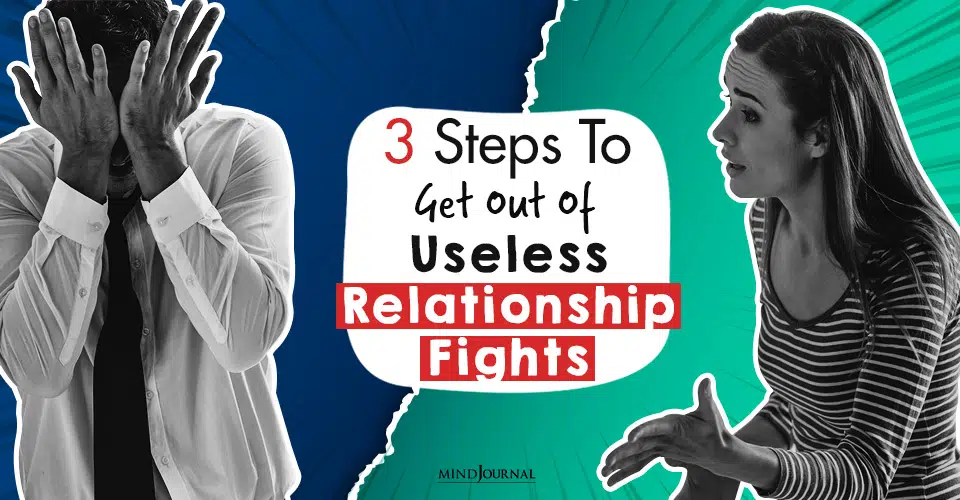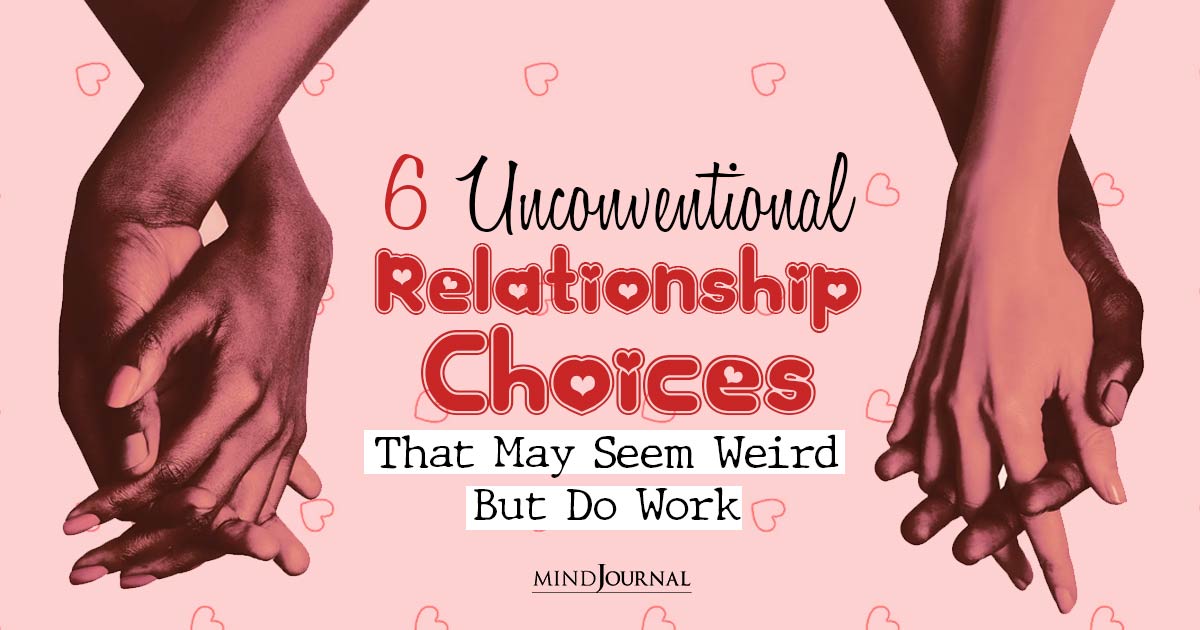It is common to get pulled into useless relationship arguments. If you are feeling stuck, learn three ways to get out of the demand and withdraw from battle.
Tyler left the office early feeling lousy. He went to bed, and a couple of hours later his wife Bethany walked in, surprised to find him there. “What are you doing?” she blurted. Tyler grimaced. “I’m sick. Is that OK?”
“I didn’t expect to see you,” Bethany said, annoyed. “Why were you trying to hide under the covers?”
“I wasn’t hiding,” he responded, “I was trying to get comfortable.”
“I was just asking,” she said, “You don’t have to get upset.” Tyler rolled toward the wall. Bethany continued: “I just want to know what is going on, and I don’t like it when you won’t tell me.”
“I am not up for one of our talks.”
“I am not needing a talk,” Bethany said, “You are ignoring me when I am just asking a simple question!”
Tyler grunted.
“Besides, I thought you were going to pick up dinner.”
“I am sick and don’t want dinner!” Tyler snapped. “I am not hungry. Do whatever you want.”
“You don’t have to get so mad!” Bethany said, “I am just trying to help, and you are being rude!”
Tyler pulled the pillow over his head, Bethany stomped out, and both spent the evening sulking and frustrated.
When I talked with Bethany and Tyler about this, it became evident that there was no actual disagreement at any point of this spat. It literally was, as Bethany realized, “A fight about nothing.”
How did they get pulled into a useless argument?
As we broke it down, a few reasons jumped out: First, they were falling into a very common but unhealthy pattern, called demand-withdraw. It happens when one partner pushes an issue, which feels like a demand to the other, who withdraws. This pattern can escalate because the partner who wants to talk gets frustrated as the other clams up or turns away. The demander presses harder, which puts more pressure on the withdrawer to retreat. The problem becomes the pattern, not the issue that started it.

When demand-withdraw ignites, it can lead to anger, defensiveness, and even abuse. Researcher Sue Johnson suggests that demand-withdraw occurs in almost every relationship because of natural attachment needs, in which the pursuing partner seeks connection and resolution, and the withdrawer avoids discomfort.
There is another factor that traps couples in this deteriorating exchange. My research has focused on how escalation distorts perceptions. For instance, when you get frustrated, it is broadcast in your voice and face, which makes your partner tense up and react. As negative emotion begins to flow, it becomes more influential than the words, and acts as a blinder, putting things in a bad light.
Also read 11 Signs It’s An Emotionally Abusive Relationship
Your own behaviour feels reasonable, while the other’s looks senseless and cruel. Tyler pointed this out: “We kept making assumptions about what the other was thinking. I felt like she was being ridiculously pushy, like a dog on a bone. I just wanted to rest.” Bethany’s version, was of course, different. “I was just surprised and wondering what was going on. I felt like he was being touchy and defensive.”
They realized they had been upset over nothing, but their bad feelings were still real. How could they avoid getting caught in this vortex the next time someone got upset? We made a three-point plan:
1. Become Aware of Distorted Thinking
Each needed to take responsibility for their exaggerated views. This was tricky because they were unaware of their blind spots. For example, Tyler tried to justify his reactions by claiming Bethany “always set the tone in the relationship,” and he just reacted to her.
Also read What Is Cognitive Dissonance? Common Causes and How To Resolve It
However, I asked him if it was possible that his “reaction” also contained a sharp tone, or if he misinterpreted her words because he was feeling lousy. He agreed that this was possible, and realized that it wasn’t fair to always claim that Bethany always “started it.” Bethany admitted that she thought Tyler was “being a baby,” which influenced her annoyed tone. They each realized that in their tired state they were too sensitive.
2. Change the Cycle
The partner who is prone to demanding must soften his or her approach, and the withdrawer needs to stay connected and not shut down. Bethany realized that her style might come across as aggressive at times, so she practised asking questions or bringing up concerns in a gentle and constructive way.
Tyler practised listening non-defensively when an issue was brought up. He tried to hear to understand rather than retort, and he requested a break if he wasn’t up for a discussion. He tried not to make assumptions about Bethany’s intentions.

Also read Love vs. Attachment: 5 Differences Between Emotional Connection and Insecure Attachment
3. Take a Time-Out
Both learned to stop and separate when their conversations began to escalate and their thoughts became accusing and defensive. They did this with the commitment of getting back together later (important to Bethany) with a short and focused conversation (important to Tyler).

With practice, Bethany and Tyler got better at catching themselves when emotions revved up and thoughts became distorted. This kept them out of the useless escalations that had been costing them energy and closeness. “Now when we get frustrated, we at least have a good reason for it!” Tyler joked. They got annoyed less often and handled it better by changing their thinking and giving each other space. The next time Tyler felt sick, he put a Post-it on his door: “No fights about nothing.”
References Jason B. Whiting, Megan Oka, and Stephen T. Fife, "Appraisal Distortions and Intimate Partner Violence: Gender, Power, and Interaction," Journal of Marital and Family Therapy 38, no. s1 (2012): 133-149. Sue Johnson, Hold me Tight: Seven Conversations for a Lifetime of Love. London: Piatkus, 2008.
Written by: Jason Whiting Originally appeared on:Psychology Today Republished with permission









Leave a Reply
You must be logged in to post a comment.